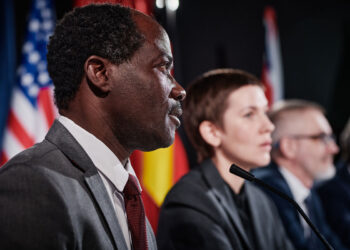With the theme “Act Now to End AIDS,” the world community recently commemorated World AIDS Day 2024. Focus is now on the pressing need for financial support, political commitment, and community mobilisation in order to end the epidemic by 2030. While significant strides have been made, UNAIDS warns that we are at a critical juncture. Of the 39.9 million people living with HIV, 9.3 million are still not receiving life-saving treatment, and every minute, one AIDS-related death occurs. Alarmingly, new infections remain high at 1.3 million annually.
Key populations, including LGBTQI individuals, sex workers, and people who use drugs, are disproportionately affected by HIV. UNAIDS reports that these groups accounted for 65% of new infections globally in 2023. Structural barriers such as stigma, discrimination, and criminalization make it difficult for these populations to access healthcare.
In Africa, LGBTQI individuals face additional challenges. In countries like Uganda, recent anti-LGBTQ legislation has created a hostile environment, forcing many to avoid healthcare facilities out of fear of arrest or public outing. Similarly, in Kenya, a 2023 report highlighted that LGBTQI patients are often subjected to invasive questioning, verbal abuse, or outright denial of treatment by healthcare providers.

Winnie Byanyima, Executive Director of UNAIDS, has underscored the need to dismantle discriminatory laws and policies. “Ending AIDS requires dismantling barriers of stigma and discrimination,” she asserts. Without structural change, key populations will remain on the margins of healthcare access.
Successes in Treatment and Prevention
Global efforts to scale up antiretroviral therapy (ART) have yielded remarkable results. Today, 30.7 million people are receiving ART, a significant leap from 47% coverage in 2010 to more than 75% in 2024. Scientific innovations, such as long-acting injectable ART and pre-exposure prophylaxis (PrEP), have transformed HIV prevention and treatment. However, access to these life-saving tools remains inequitable, particularly in low-income countries where funding gaps persist.
For LGBTQI individuals in Africa, these disparities are even more pronounced. Transgender persons, for instance, face unique health challenges that require gender-affirming care, which is often unavailable in public health systems. Without inclusive services, HIV prevention tools like PrEP are underutilised within these communities.

Addressing Stigma and Building Resilience
Efforts to eliminate stigma have gained momentum in 2024, with Germany joining UNAIDS’ Global Partnership for Action to Eliminate HIV-related Stigma and Discrimination. This initiative focuses on creating inclusive healthcare environments, addressing discriminatory practices, and ensuring equitable resource allocation. Activists argue that stigma is not just a social issue but a structural one, deeply embedded in healthcare and legal systems.
In response to these challenges, grassroots organizations are stepping up. In South Africa, for example, OUT Well-being provides specialized HIV care for gay and bisexual men, while Nigeria’s Initiative for Equal Rights (TIERs) runs community-led health programs for LGBTQI persons. These models of resilience offer hope for other countries grappling with stigma and exclusion.
The Role of Technology in Bridging Gaps
In countries with restrictive laws, digital platforms have become crucial for reaching LGBTQI individuals. In Kenya, online services now provide anonymous consultations, ART deliveries, and educational content, empowering individuals to access care discreetly. However, rural areas with limited internet access remain underserved, highlighting the need for investments in digital health infrastructure.
Call to Action: A Shared Responsibility
As UNAIDS’ report The Urgency of Now highlights, bold investments in healthcare and human rights can prevent millions of deaths. The organization projects that with sustained action, the number of people living with HIV could drop to 29 million by 2050. However, inaction could see this figure rise to 46 million, undermining decades of progress.
Activists emphasize that addressing HIV among marginalized populations is not just a health issue but a human rights imperative. “Leaders can save millions of lives by acting boldly today,” says Byanyima. This includes repealing discriminatory laws, ensuring equitable access to healthcare, and funding inclusive prevention programs.
A Personal Perspective: Stories from the Ground
Amani, a gay man living in Tanzania, shares his struggle: “When I tested positive, the clinic refused to treat me because I was gay. I had to travel to a private facility, spending money I didn’t have.” Such stories underscore the intersection of poverty, stigma, and limited healthcare options for LGBTQI individuals in Africa.
Similarly, in Uganda, Maria, a transgender woman, speaks of being turned away from a public hospital. “They said they don’t serve people like me. I felt invisible and helpless,” she recounts. These incidents demonstrate how urgently inclusive healthcare systems that value respect and dignity are needed.
World AIDS Day: A Time for Action
As the world reflects on the progress made and challenges ahead, the message is clear: HIV/AIDS is not just a health issue but a matter of equity and justice. From addressing stigma to funding scientific innovations, every action counts in the fight to end AIDS by 2030.
The clock is ticking, and the world cannot afford to fail. This World AIDS Day, let us act decisively to save lives, protect human rights, and ensure no one is left behind.
Discover more from Newswire
Subscribe to get the latest posts sent to your email.







